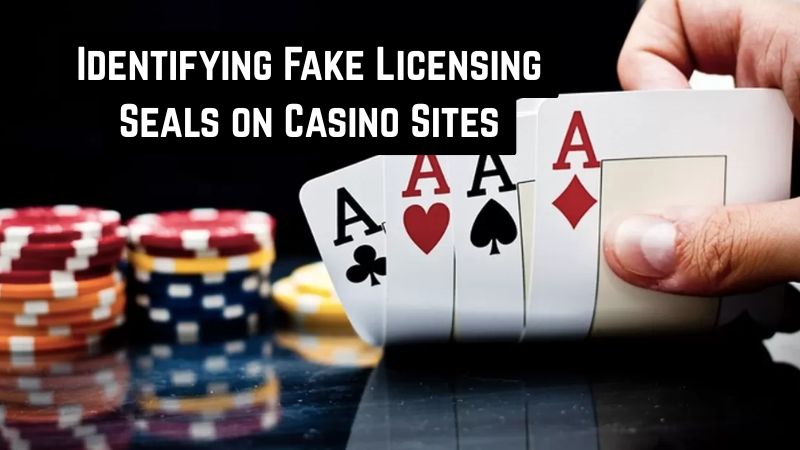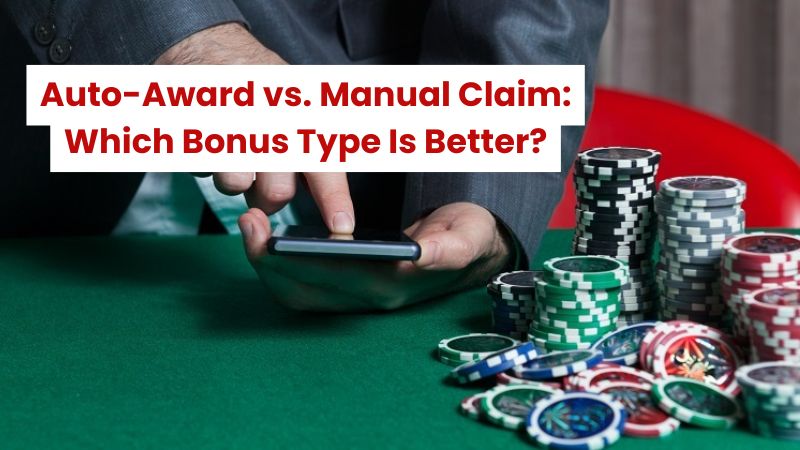Online casinos have become increasingly popular, but not all of them are trustworthy. One way to verify a casino’s legitimacy is by checking for a valid licensing seal. Licensing seals indicate that a casino is regulated and follows industry standards. However, not all licensing seals are genuine. In this post, we will walk you through how to identify fake licensing seals on casino sites and why it’s important to stay cautious.
Why Licensing Seals Matter
Licensing seals are essential because they provide players with a sense of security. They are proof that a casino is operating under legal guidelines and is subject to audits and regulatory checks. These licenses are issued by reputable authorities that ensure online casinos maintain fair play, secure transactions, and proper treatment of their players. Without these licenses, a casino could easily engage in unethical practices, such as rigged games or mishandling of player funds.
Common Licensing Authorities
Before diving into how to spot fake seals, it’s important to understand which licensing authorities are considered legitimate. Some of the most respected regulators include:
- UK Gambling Commission (UKGC)
- Malta Gaming Authority (MGA)
- Gibraltar Regulatory Authority
- Curacao eGaming
- Alderney Gambling Control Commission
These authorities are known for their rigorous standards and oversight. If a casino displays a seal from one of these organizations, it is usually a good sign. However, this doesn’t mean that all licensed casinos are trustworthy—it’s just a starting point.
How to Spot Fake Licensing Seals
While legitimate casinos proudly display their licensing seals, some rogue sites fake them to appear credible. Here are a few ways to identify if a seal is fake:
1. Check the License Number
A legitimate casino will typically include the license number alongside the seal. If you see a seal without any reference to the license number, it’s a red flag. If the casino provides a license number, you can easily verify it by visiting the official website of the licensing authority. This will tell you if the casino is genuinely registered with that body.
2. Verify the Seal with the Issuing Authority
Most regulatory bodies have a list of licensed casinos on their website. If you come across a casino with a particular license seal, go to the official site of the issuing authority and search for the casino’s name. If you can’t find it, there’s a good chance the seal is fake.
3. Look for Small Details
Fake seals often have visible signs of tampering. The quality of the seal might be poor, with pixelated or unclear text. A genuine licensing seal will usually have high-quality graphics and easily readable text. If you notice anything unusual, it might be worth digging deeper into the casino’s legitimacy.
4. Research the Casino’s Reputation
The online casino’s reputation can also offer clues about whether it is trustworthy. Search for reviews and feedback from other players. If a casino is known for fraudulent activities or has a history of unfulfilled payouts, it’s likely that the licensing seal is fake, too.
5. Look for Multiple Seals
Some casinos display multiple licensing seals, but this can be a sign of dishonesty. In many cases, rogue casinos try to look more legitimate by adding multiple seals from different regulators. Be cautious and check each one. It’s best to see a casino with one well-known, reputable seal rather than multiple unknown ones.
What Happens if You Play at a Casino with a Fake Seal?
Playing at an online casino with a fake licensing seal can lead to a range of problems. First and foremost, you might be exposed to unfair practices, such as rigged games or withdrawal delays. Fake casinos may also steal your personal and financial information, putting you at risk of identity theft.
Additionally, if the casino is unlicensed, you won’t have any legal recourse if something goes wrong. Reputable licensing authorities offer protection to players, so if a casino violates its terms, you can file complaints or even take legal action. However, if you’re dealing with a fake casino, you’re on your own.
How to Protect Yourself When Gambling Online
Knowing how to identify fake licensing seals is just the beginning. There are other precautions you can take to protect yourself while gambling online:
1. Stick to Reputable Casinos
Always choose casinos that have earned a solid reputation within the gambling community. Look for those with strong customer reviews, established track records, and reliable customer service.
2. Use Trusted Payment Methods
Ensure that the casino supports secure and trusted payment methods, such as credit cards, e-wallets, or bank transfers. Avoid sites that only accept obscure payment methods, as these could be an attempt to hide fraudulent activity.
3. Set Limits on Your Gambling
Gambling responsibly is key to enjoying your online casino experience. Set limits on your deposits and bets, and never gamble more than you can afford to lose. Many licensed casinos offer tools to help manage your gambling habits.
4. Read the Terms and Conditions
It may seem tedious, but reading the terms and conditions of a casino is crucial. This can help you spot any hidden fees, unfair practices, or unclear withdrawal processes that could indicate a scam.
The Risks of Fake Licensing Seals
The risks of playing at a casino with a fake licensing seal go beyond just losing your money. Some players have reported fraudulent casinos stealing their personal details and committing identity theft. These casinos may also engage in rigging games to ensure that players lose consistently, offering no chance of winning.
Additionally, without proper regulation, fake casinos may not protect your financial transactions. Your funds could be at risk, and you might find it difficult to withdraw any winnings. In extreme cases, these rogue sites may even disappear with your money, leaving no way for you to contact them.
What to Do if You Encounter a Fake Casino
If you suspect that a casino is using a fake licensing seal, it’s important to report it. You can notify the licensing authority it claims to be registered with, as they may take action to investigate the casino. Additionally, you can report the casino to player forums and review sites, helping other players avoid it.
If you’ve already lost money to a fraudulent casino, contact your bank or payment provider to see if they can help you reverse the transaction. In some cases, you may be able to recover funds through chargebacks or other forms of dispute resolution.
Conclusion
Knowing how to identify fake licensing seals is crucial for any online gambler. While legitimate casinos are regulated and trustworthy, fraudulent sites will often go to great lengths to appear credible. Always take the time to verify licensing seals, research the casino’s reputation, and stay vigilant when gambling online. By doing so, you can protect your funds and enjoy a safe, secure, and fair gaming experience.



